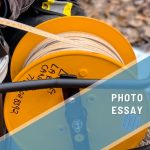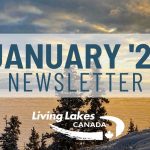Confluence of Knowledge: Yukon lake stewards gather for Celebrating The Lakes
The Celebrating The Lakes gathering — an event exploring lake monitoring through Western science and Indigenous Knowledge — took place on the traditional territories of the Ta’an Kwäch’än Council and the Kwanlin Dün First Nation.
The gathering began with an Opening Water Ceremony at the sacred fire, with the Yukon River’s gentle murmur in the background.
A diverse group of people from the Yukon, Alberta, and B.C. stood with Elders Ann Smith (Kwanlin Dün First Nation), Betsy Jackson (Ta’an Kwäch’än Council), and Colleen James (Carcross/Tagish First Nation). Many held small containers filled with lake water from their home regions as requested by the Elders.
As Doronn Fox, the event Fire Keeper, brought the first flames to life, participants poured their lake water, representing where they’re from, into a glass vase at the edge of the fire. Water from Tagish Lake, Okanagan Lake (kɬúsx̌nítkʷ), Fish Lake (Łu Zę̀la Mǟn) and many more — once separated by geography — now were inextricably one.
The Elders said, “water is always listening”. A dedicated place inside the Kwanlin Dün Cultural Centre held space for the water vase and a lit candle, which symbolized the sacred fire, throughout the entire event. Outside, the sacred fire continued to be carefully tended.
This ceremony set the tone for 1.5 days of workshops, panels, and meaningful dialogue about the health and importance of lakes in the Yukon. Led by Living Lakes Canada, the Celebrating The Lakes gathering was held in mid-December in Whitehorse, YT. This event brought together staff from Indigenous, territorial, and federal government along with environmental organizations and academia. This gathering continued conversations started in Spring 2023 around community-based lake stewardship and the possibility of a coordinated lake monitoring approach in the Yukon.
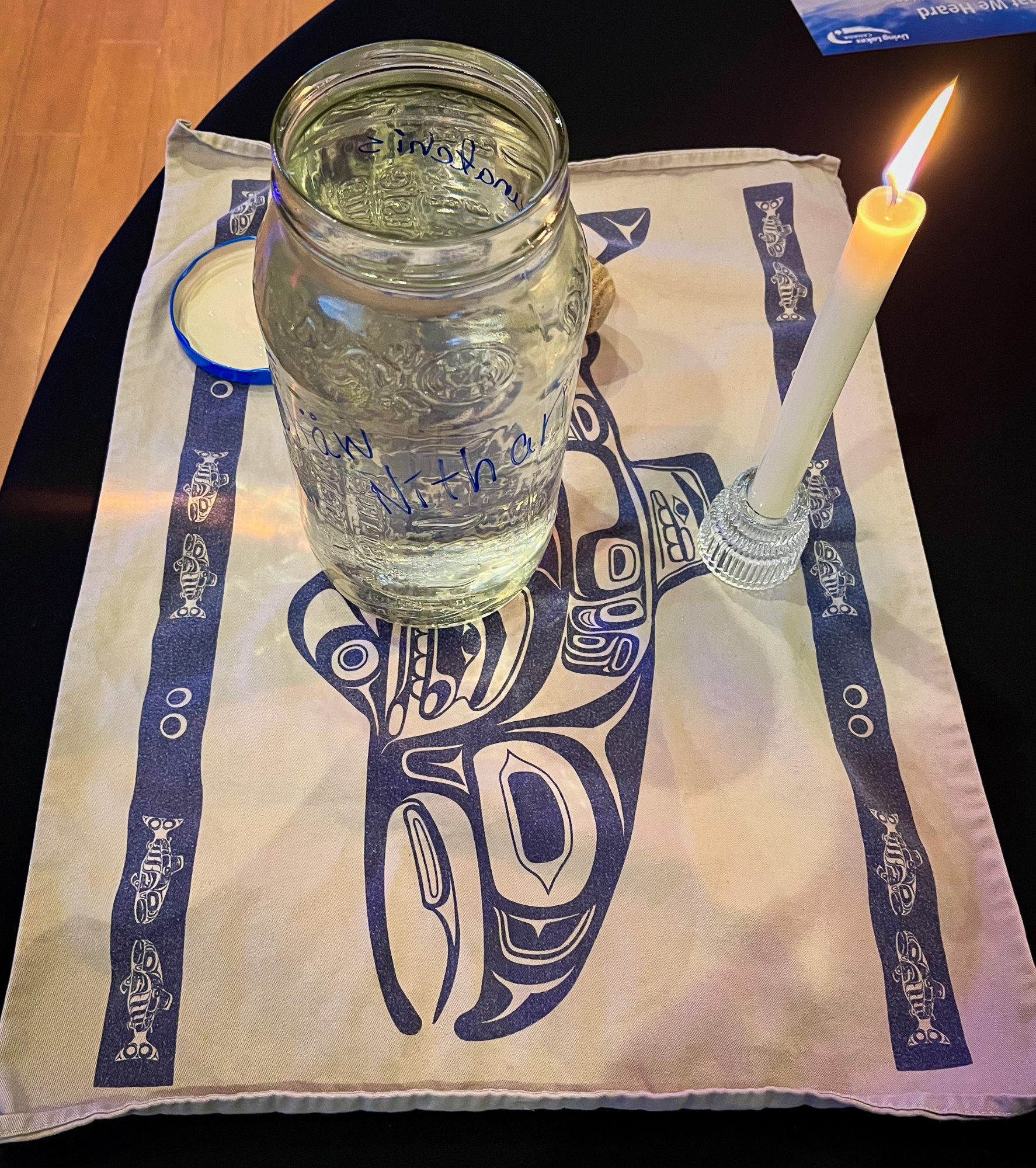
“Water is the core of sustainable development and it’s critical for socio-economic development, healthy ecosystems and for human survival itself,” said Sarah Sinclair, a youth from Peavine Metis Settlement, during the first panel presentation on youth perspectives in water stewardship. “Most of our Elders are worried about our lakes. We are learning together about how to take care of them.”
Youth are considered particularly vulnerable and disproportionately impacted to the consequences of climate change, as are Indigenous Peoples, rural communities and vulnerable populations. It’s important to empower youth by providing pathways for meaningful action — a sentiment shared by many at the gathering.
“Bringing youth into monitoring efforts and research, so they can see what is happening around them and understand it, is key because knowledge is power in terms of turning climate anxiety into action,” said another youth panelist, Maddy Mead with Yukon Youth Conservation Corps, Blue Crew.
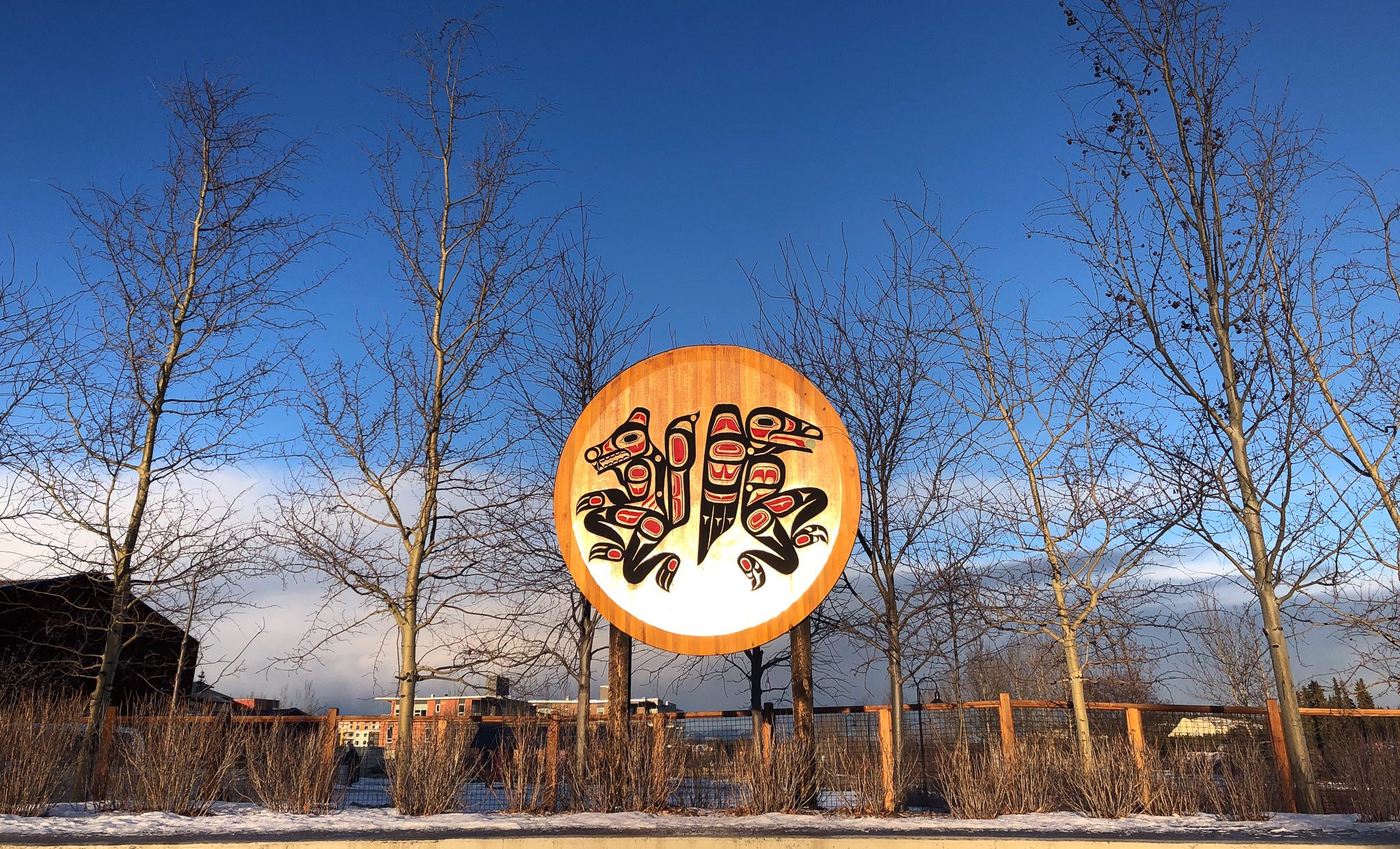
In evaluating the potential of a coordinated lake monitoring approach across the territory, it’s critical to gain insight into existing lake monitoring initiatives. The panel discussion on current monitoring efforts highlighted two of the greatest obstacles in monitoring climate impacts on Yukon lakes: limited capacity and consistent, long-term funding.
As panelist Petra Szekeres with EDI Environmental Dynamics said, “Resources are the challenge, collaboration is the solution.”
Data sharing between organizations, governments and with local communities, coupled with greater awareness of ongoing and historic projects, were two collaborative solutions brought forward. Grounding all water stewardship efforts in Indigenous Knowledge, with its profound and intrinsic connection to the land and lakes spanning millennia, was also deemed essential.
“We (Indigenous Peoples) are not data deficient. We have a long long history of knowledge,” said Brian Holmes, of the Upper Nicola Band and B.C. Ministry of Water, Land and Resource Stewardship, who attended as a guest speaker.
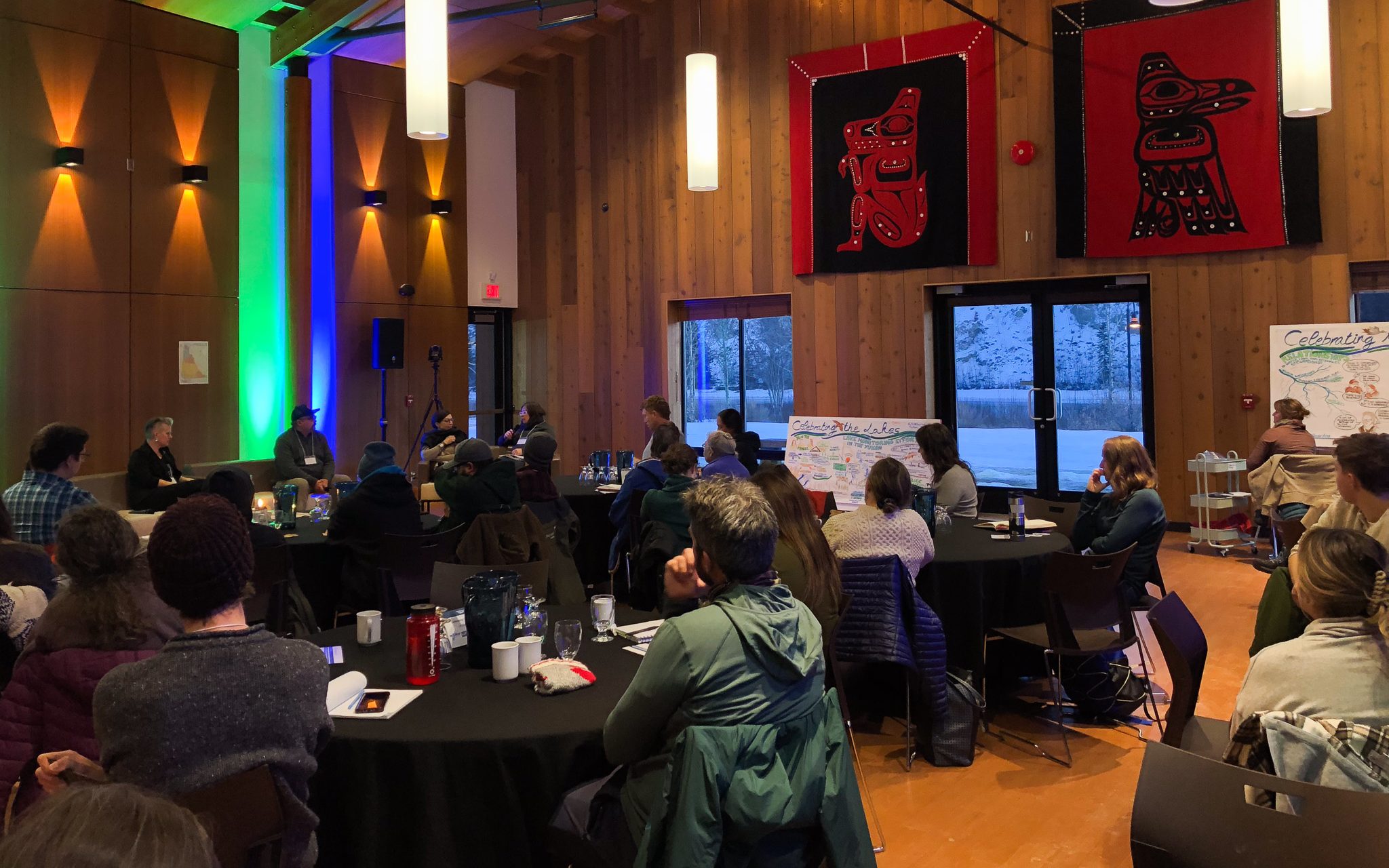
“Oral history is just that. Shared through our stories and handed down through generations of storytelling,” said Coralee Johns, 7Generations Consulting, Traditional Knowledge Advisor and Citizen of Ta’an Kwäch’än Council.
Discussion centered around how braiding Indigenous Knowledge with Western science is paramount to a holistic understanding of the health of lakes, and how this approach requires cultivating authentic and transparent relationships with Indigenous communities, actively listening and valuing the deep-seated knowledge of Elders. Respectfully working with Indigenous Knowledge and Western science in parallel necessitates a shift in the way organizations, governments, and communities work together.
At the end of the gathering, the vase holding the essence of many lakes was ceremoniously released into the current of the Yukon River. The water had heard the rich exchange of ideas, dialogue and sentiments. The Fire Keeper remained with the sacred fire until the last embers naturally extinguished.
In Spring 2024, Living Lakes Canada will publish a short report on the event. A graphic recording of the event by Esther Bordet with Yukon Graphic Recording is available here.
The Celebrating the Lakes Gathering (Phase II) is a follow-up to the Yukon Lakes Overview Project (Phase I) commissioned by the Government of Yukon. From April to September 2023, Phase I explored the current and historic lake monitoring efforts, concerns, and priorities of Yukon right holders and stakeholders, and culminated in a recommendations report.
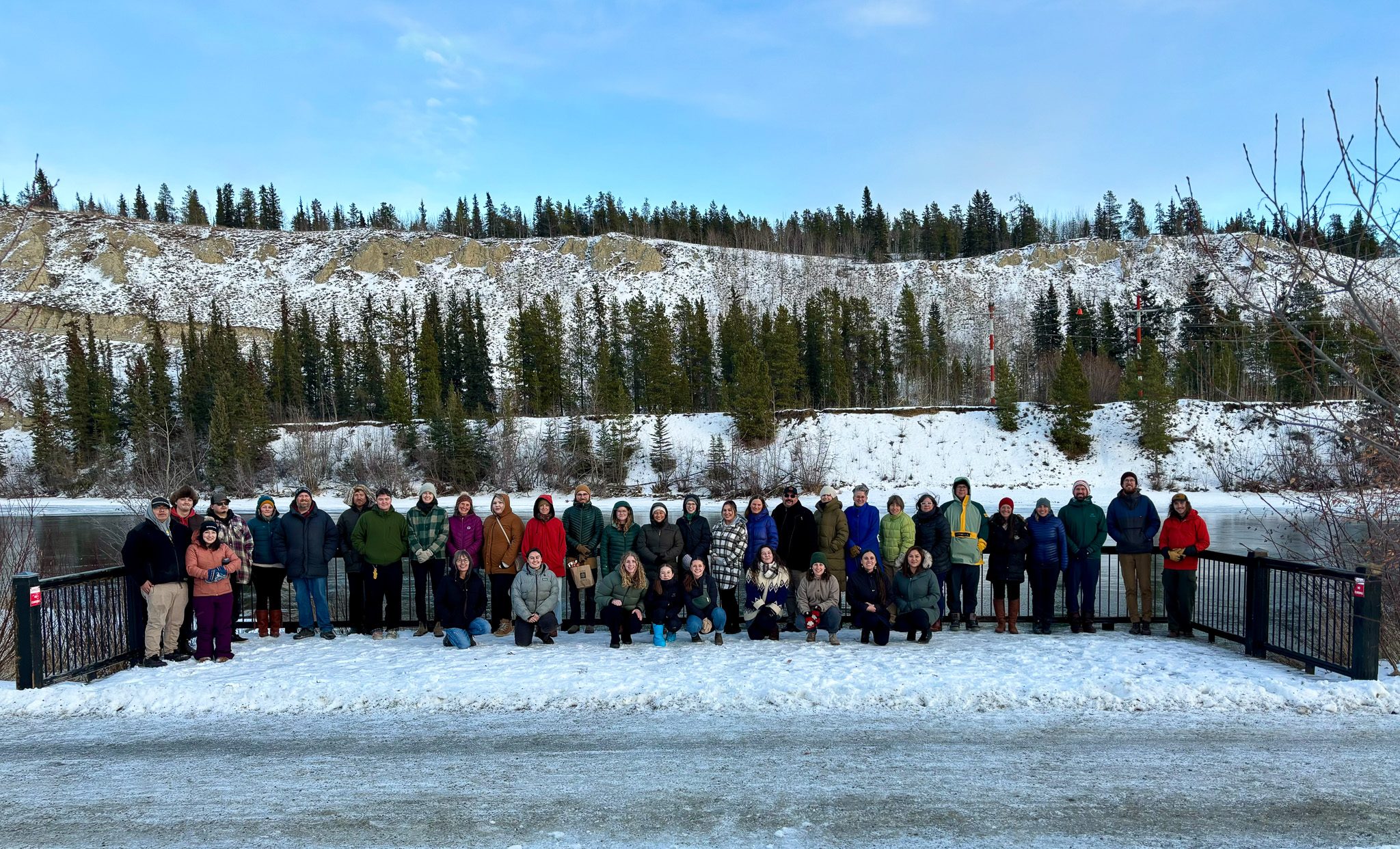
The report provided eight recommendations that describe potential pathways to implement long-term lake monitoring that support the protection of lakes for future generations. This includes developing the capacity to interweave Indigenous Knowledge and Western science in all potential lake monitoring activities, and prioritizing a watershed-level approach to lake monitoring. Check out the report summary and full report.
Visit the Yukon Lakes Monitoring Initiative program page to learn more.
If you have any questions regarding this program, live in the Yukon and have concerns about your local lakes, or are interested in participating in the protection of lakes in the Yukon, please contact Georgia Peck, Lakes Program Manager at Living Lakes Canada: georgia@livinglakescanada.ca.
The Celebrating The Lakes gathering was made possible with the financial support provided by the Government of Yukon and RBC Tech for Nature. Thank you to gift sponsors AirNorth, Eclipse Nordic Hot Springs and Lush. A final thank you goes to participants in the Celebrating The Lakes gathering for their invaluable contributions.




